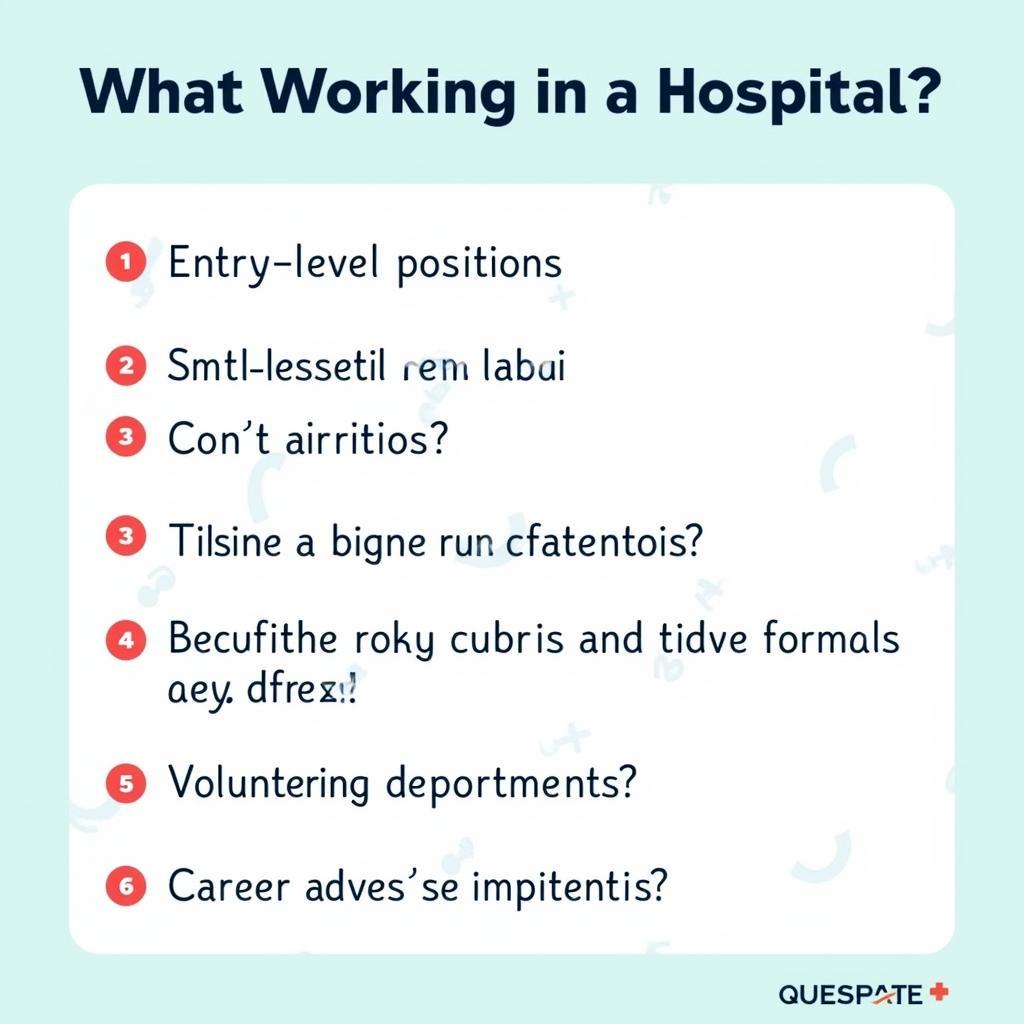Working in a hospital is a rewarding experience for those passionate about helping others and contributing to a vital community service. It offers a diverse range of career paths, from direct patient care to administrative and support roles. This guide provides valuable insights into how to navigate the various options and find the right fit for you. Whether you’re considering a career in medicine, nursing, or other hospital-based professions, understanding the requirements, challenges, and opportunities is crucial.
Many aspire to contribute to the healthcare field by working in a hospital environment. There are various roles and specializations within a hospital, making it an attractive career destination for individuals with different skill sets and interests. You might be interested in direct patient care, like a nurse or doctor, or perhaps you prefer working behind the scenes in administration or support services. Regardless of your preference, understanding how to navigate the hospital environment and choose the right path is essential. Check out the available hospital workstation on wheels for more information on modern hospital equipment.
Exploring Hospital Career Paths
One of the first steps in working in a hospital is to explore the various career paths available. This includes understanding the educational requirements, necessary certifications, and potential career progression within each field.
Direct Patient Care
This category encompasses roles that involve direct interaction with patients. Some common examples include:
- Physicians: Require extensive education and training, culminating in a medical degree and residency.
- Nurses: Registered nurses (RNs) require a nursing degree, while Licensed Practical Nurses (LPNs) have shorter training programs.
- Therapists: Physical, occupational, and speech therapists work with patients to improve their mobility, function, and communication.
Administrative and Support Staff
Essential for the smooth functioning of the hospital, these roles play a vital part in supporting patient care indirectly:
- Medical Assistants: Assist physicians with clinical and administrative tasks.
- Hospital Administrators: Manage the day-to-day operations of the hospital.
- Technicians: Operate specialized equipment and perform diagnostic tests.
 Exploring Different Career Paths in a Hospital
Exploring Different Career Paths in a Hospital
Educational Requirements and Certifications
The educational requirements for working in a hospital vary significantly depending on the chosen profession. For instance, becoming a physician demands years of rigorous study, while other roles, such as a medical assistant, might require a shorter certification program. For more information, see our resource on can a medical assistant work at a hospital.
What education do you need to work at a hospital?
The required education depends on the specific role. Physicians require a medical degree and residency, nurses need a nursing degree, and other roles may have specific certification requirements.
How long does it take to become a hospital worker?
The time commitment varies significantly, ranging from several months for certification programs to many years for specialized medical professions.
Gaining Experience and Building Your Network
Gaining practical experience is crucial for securing a hospital job. Internships, volunteer work, and shadowing professionals can provide invaluable exposure to the hospital environment. Networking with healthcare professionals can also open doors to job opportunities and mentorship. If you are interested in working in hospitality, take a look at our workshop hospitality.
Preparing for the Hospital Work Environment
Working in a hospital can be demanding and emotionally challenging. Long hours, high-pressure situations, and exposure to illness and suffering are realities of this profession. Developing resilience, strong communication skills, and a genuine compassion for patients are essential qualities. For a glimpse into patient interactions, you can read about Dana works at the hospital and interacts with a patient.
What are the challenges of working in a hospital?
Working in a hospital can be physically and emotionally demanding, involving long hours, high-pressure situations, and exposure to illness.
How can I prepare for the emotional demands of hospital work?
Building resilience, strong communication skills, and genuine empathy are essential for navigating the emotional complexities of hospital work.
Navigating Hospital Hierarchy and Teamwork
Hospitals operate within a hierarchical structure, with clear lines of authority and responsibility. Effective teamwork is crucial for ensuring patient safety and quality care. Understanding your role within the team and communicating effectively with colleagues from different disciplines is paramount. Check out resources for Dameron hospital employee resources.
In conclusion, working in a hospital offers a fulfilling career path for individuals driven by a desire to contribute to healthcare. Understanding how to navigate the diverse range of opportunities, educational requirements, and the unique challenges of this environment is essential for success in this rewarding field.
FAQ
- What are the entry-level jobs in a hospital?
- What is the highest paying job in a hospital?
- How can I volunteer at a hospital?
- What are the benefits of working in a hospital?
- How can I find hospital jobs near me?
- What are the different departments in a hospital?
- How can I advance my career in a hospital setting?
 Frequently Asked Questions about Working in a Hospital
Frequently Asked Questions about Working in a Hospital
When you need support, please contact Phone Number: 02437655121, Email: [email protected] Or visit the address: No. 298 Cau Dien Street, Minh Khai, Bac Tu Liem, Hanoi, Vietnam. We have a 24/7 customer care team.